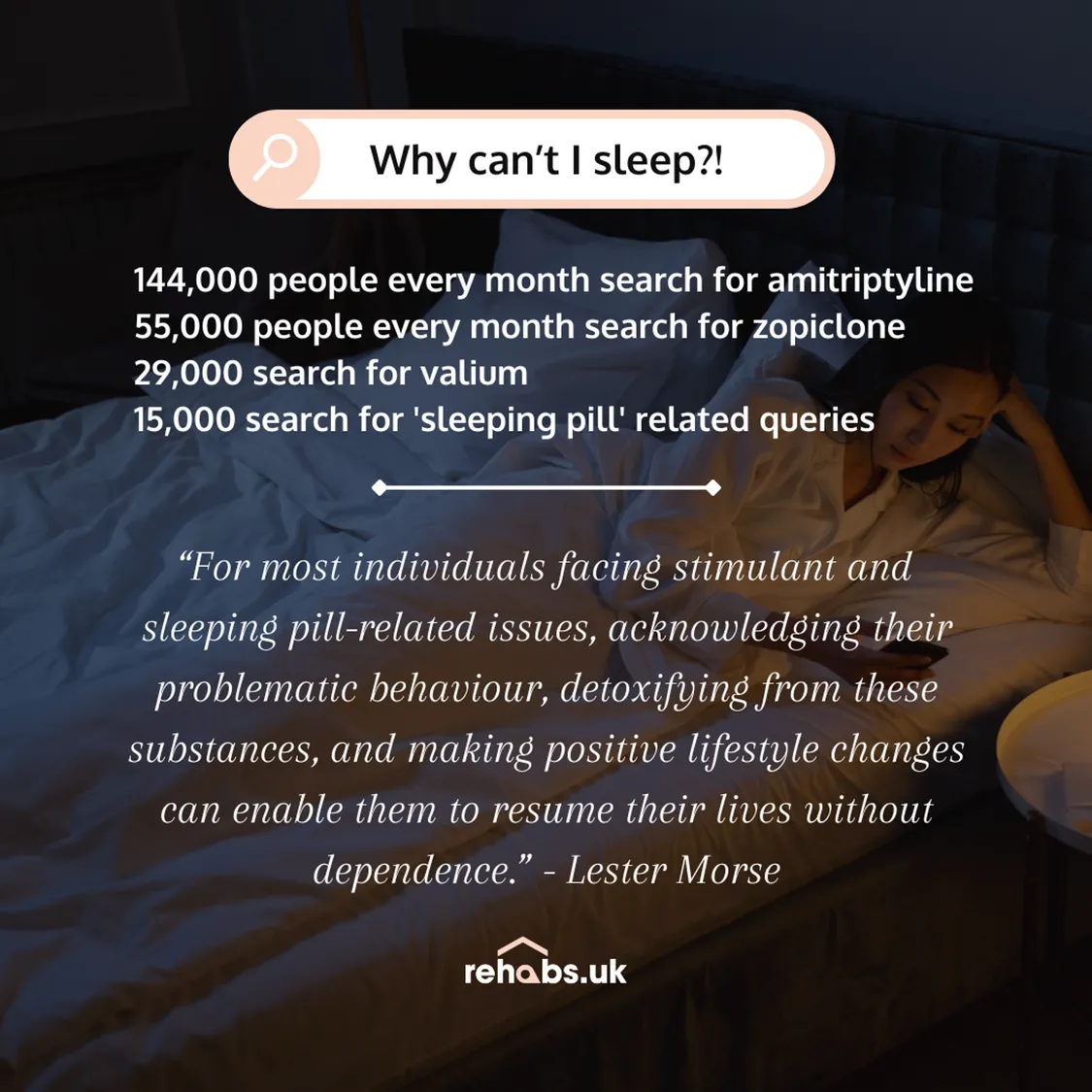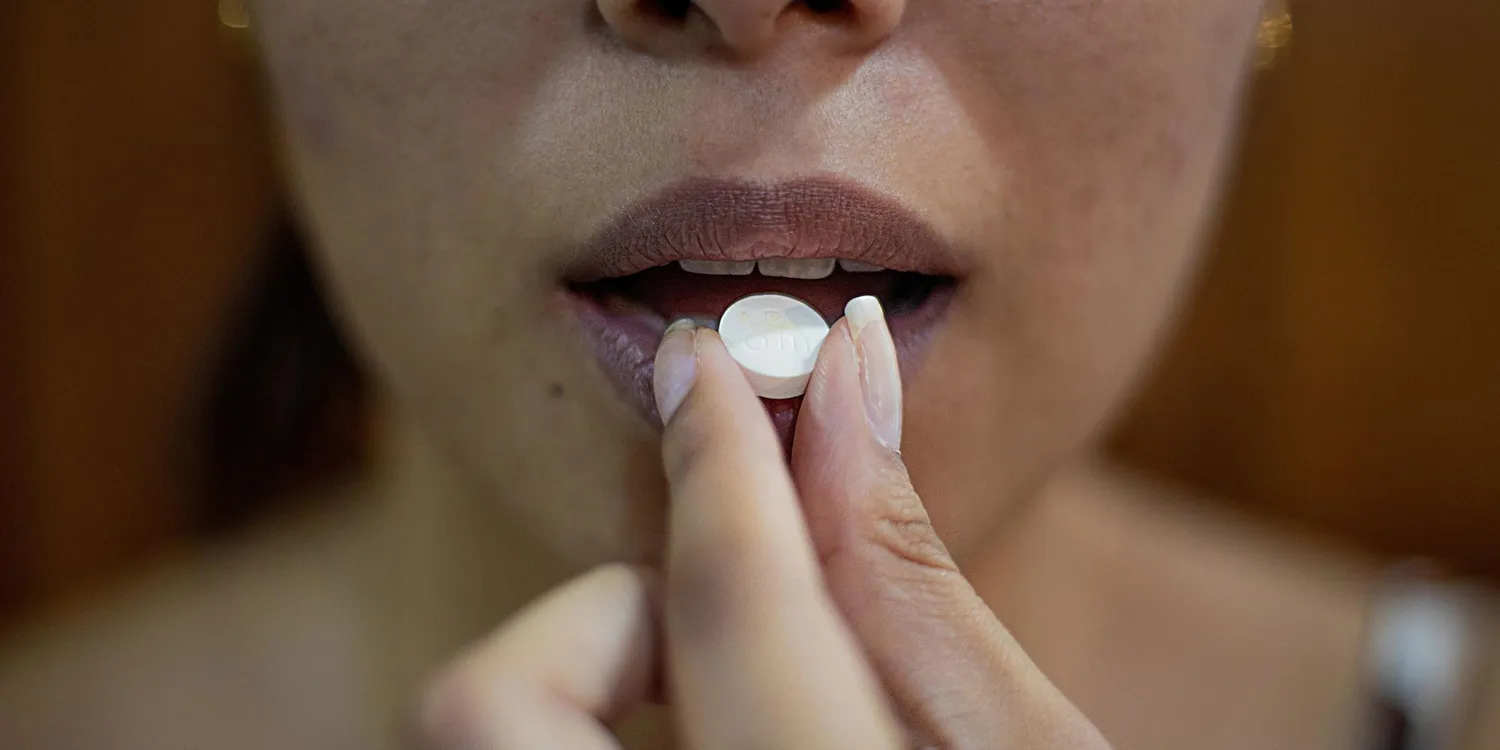14 Aug 2023
Online interest in sleeping pills has risen 83% since February this year, according to Google Trends. With prominent figures such as midfielder Dele Alli speaking out about their sleeping pill addiction, as well as recent NHS plans to battle the opioid crisis, we investigate why so many struggle with sleepless nights.
- In the UK alone, 144,000 people every month search for amitriptyline online, 55,000 people every month search for zopiclone, 29,000 search for valium, and over 15,000 search for 'sleeping pill' related queries.
- Related common searches include 'how to get prescribed sleeping pills uk' and 'what are the strongest sleeping pills uk' as well as 'where to buy sleeping pills'.
- Other addictions are also on the rise as the number of people being treated by ear, nose and throat medics due to cocaine use triples in recent years.
Lester Morse, Rehabs UK founder and director, urges patients to examine the core reasons behind sleepless nights: “In my experience, sleep problems are often a result of lifestyle behaviours or other addictions. In these instances, taking sleeping pills is just temporarily easing the symptoms rather than treating the underlying issue.”
In fact, research shows that taking sleeping pills long-term doesn’t usually improve sleep. However, more and more people are turning to buying these types of medications online which poses serious health risks.
One of the core issues Morse sees as a cause for sleeping problems is the overconsumption of stimulants: “People nowadays consume without thinking, far too many stimulants like red bull or other energy drinks, strong coffee or caffeine products, nicotine in vapes, and so on. I am forever challenging people with depression and what I would call ‘stimulants insomnia’ to check their intake of daily chemicals/stimulants, including sugar.”
While Morse acknowledges that one can be physically addicted to certain sleeping medications, he notes that in many cases this is more of an unhealthy dependency than a ‘true addiction’: “From my point of view to be addicted in the true sense you would have to be physically and mentally addicted.”
“To illustrate, in my hypothetical scenario, if we were to administer highly addictive drugs to a diverse group of one hundred people, all of them would likely experience physical addiction and severe withdrawal symptoms after a short period of use. Those who aren’t addicts would instinctively recognize the dangers, and would be likely to abstain from further consumption. However, those predisposed to addiction, be that due to genetic or environmental factors, would find it challenging to control their impulses and repeatedly seek the drug.”
“For most individuals facing stimulant and sleeping pill-related issues, acknowledging their problematic behaviour, detoxifying from these substances, and making positive lifestyle changes can enable them to resume their lives without dependence.”

Earlier this year, the NHS released a plan to battle the opioid crisis, aiming to improve patient’s personalised reviews of their medicines as well as supporting those experiencing withdrawal symptoms from prescribed medication. However, against the backdrop of continuing NHS strikes and the cutback of vital addiction services, Morse is sceptical: “Those who believe that addiction can be curbed by simply removing substances used by individuals with addiction problems lack an understanding of addiction and historical evidence.”
“The failed US prohibition on alcohol serves as a reminder that neutralising addiction requires comprehensive alternative treatments. While the NHS action plan to mitigate the opioid crisis may be seen as a step in the right direction, based on a lifetime of experience I have little faith in this strategy.”
Here to help
If you or someone you know is struggling with addiction, Rehabs UK is here to help. Rehabs UK is committed to continuing to support those battling alcoholism, drug addictions and behavioural addictions. To access free assessments with trained treatment advisors, contact Rehabs UK.
